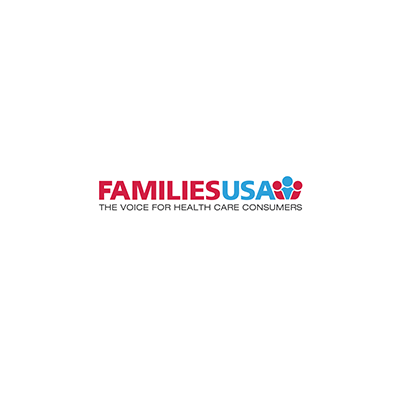
Fighting The COVID-19 Crisis By Protecting American Health Insurance
08.13.2020
NOTE: This blog was originally published in Health Affairs on August 7th, 2020.
As the nation faces its gravest health danger in a century, nothing is more important than making certain that those who are ill get treatment, and those who are healthy stay that way. Neither group should have to worry that accessing health services will impose a financial burden. But this health crisis is accompanied by a severe economic crisis, causing millions of layoffs and furloughs and, therefore, the loss of employer-sponsored health insurance coverage for millions of individuals and families. This destabilizes families’ financial security and threatens first responders’ and the health care sectors’ economic viability. For our country to surmount both crises successfully, Congress must act now to protect comprehensive health insurance.
For 35 years, continuation coverage under the Consolidated Omnibus Budget Reconciliation Act of 1985 (COBRA) has been a crucial safety net for many people who otherwise would lose employer-based health coverage for reasons such as job loss or divorce. When COBRA isn’t available or affordable, many families also turn to private coverage in the health insurance marketplaces or to Medicaid. In this period of extreme economic stress, it is critical to ensure coverage remains affordable to families whose income has dropped or disappeared. If Congress fails to protect families’ health insurance, and millions more become uninsured, the pandemic’s spread will accelerate as people who lose their insurance stop seeking diagnosis and treatment promptly when they first feel sick. Accordingly, ensuring coverage is not only a matter of protecting Americans from the devastating financial impact of uninsured health expenses, it is also an essential component of any viable public health strategy to contain infectious disease. And without the health insurance our country needs to fight COVID-19, we will not achieve economic recovery. As Federal Reserve Chair Jerome Powell recently explained, a “very fundamental fact about our economy right now” is that economic recovery depends on bringing COVID-19 under control, so people feel safe leaving their homes and engaging in commerce.
This is why we are among the group of stakeholders that launched the Alliance to Fight for Health Care (AFHC), a diverse coalition comprised of businesses, patient advocates, labor unions, health care companies, consumer groups, and others. As leaders of our respective organizations, representing employers and families, we are committed to working together. As Congress considers additional legislation to jumpstart the economy and mitigate disruption caused by the COVID-19 pandemic, AFHC is urging Congress to focus on policies that meet three critical needs: protecting insurance for terminated and furloughed workers; strengthening the individual insurance market and Medicaid by providing increased financial support; and, assuring continued insurance reimbursement to undergird the health care delivery system, preserving access to care and protecting millions of jobs.
Protecting Laid-Off Workers’ Access To Insurance
Terminated and furloughed employees, and those with reduced working hours, must have continued access to their comprehensive health insurance coverage. Congress helped laid-off workers during the 2002 and 2009 economic downturns by paying 65 percent of premiums for COBRA coverage and providing other support for both private coverage and Medicaid. Unfortunately, these efforts reached no more than a small fraction of laid-off workers who qualified for help. They failed because premium costs continued to exceed what many unemployed workers could afford and because few laid-off workers could navigate a complicated system on their own and obtain health insurance. By contrast, when the newly unemployed received significant application assistance enrolling into coverage, participation levels more than doubled. For laid-off workers during the current downturn to obtain health insurance for which they qualify, significant funding for consumer assistance programs should thus be an essential piece in the next round of COVD-19 legislation.
Recent nationwide polling finds that, regardless of party, approximately 90 percent of voters want Congress to help laid-off workers keep their employer-provided health insurance. By continuing current coverage, COBRA limits patients’ need to change doctors and lowers health care costs by eliminating the need for families to start paying deductibles again in a new plan.
Strengthening The Individual Insurance Market And Medicaid
To help the many uninsured who are ineligible for COBRA, it is also essential for Congress to strengthen other sources of coverage. COBRA does not apply when a former employer goes out of business or is too small to be governed by the law, nor when workers did not previously receive employer-sponsored coverage. While the vast majority of Americans (178 million) receive health coverage through an employer-sponsored plan, a robust individual market and a strong Medicaid program also are important components of overall financial protection for millions of Americans. To quickly strengthen the individual market, premium tax credits should be increased to help struggling families without access to COBRA. To help Medicaid programs continue serving the lowest-income uninsured, state budget woes make increased federal matching funding essential until the economy recovers.
Supporting The Health Care Delivery System And Its Vital Workers
Last, but certainly not least, AFHC urges Congress to enhance initiatives that support health care institutions and their heroic workers. Reduced revenue for hospitals and other health care providers caused 29 percent of the second quarter’s staggering loss in Gross Domestic Product – far more than was caused by any other industry. By further reducing such revenue, health insurance losses under current economic conditions are projected to eliminate between 1.5 million and 2.5 million jobs in health care and related businesses. So, it is critical to preserve employer-sponsored health insurance and other forms of coverage – not just for those covered by these plans – but also for our health care institutions. With health care now providing one in seven U.S. jobs, a strong insurance reimbursement stream will sustain employment while saving lives by giving everyone, insured and uninsured alike, access to essential health care.
The Clock Is Ticking
While many of us wonder when life will return to normal, the clock is ticking for millions of suddenly uninsured Americans and for innumerable businesses. During June’s final week, for example, 2 million adults in families that lost employment income during the pandemic also lost their health insurance, according to an analysis of new Census Bureau data. Congress and the executive branch have stepped up to provide financial support to individuals and businesses alike. We appreciate that support, but as the pandemic continues, additional support is needed. Fully 85 percent of voters support additional COVID-19 financial assistance legislation, including a majority who want additional legislation targeting middle-and working-class Americans. And voters want this legislation now — more than three-quarters believe additional legislation should be passed before the November election.
America can’t wait. The health of our economy and the health of our people are at stake. This dual economic and health crisis demands a response that ensures vital insurance coverage. Together, we and our elected representatives can forge an alliance to fight for health care.



